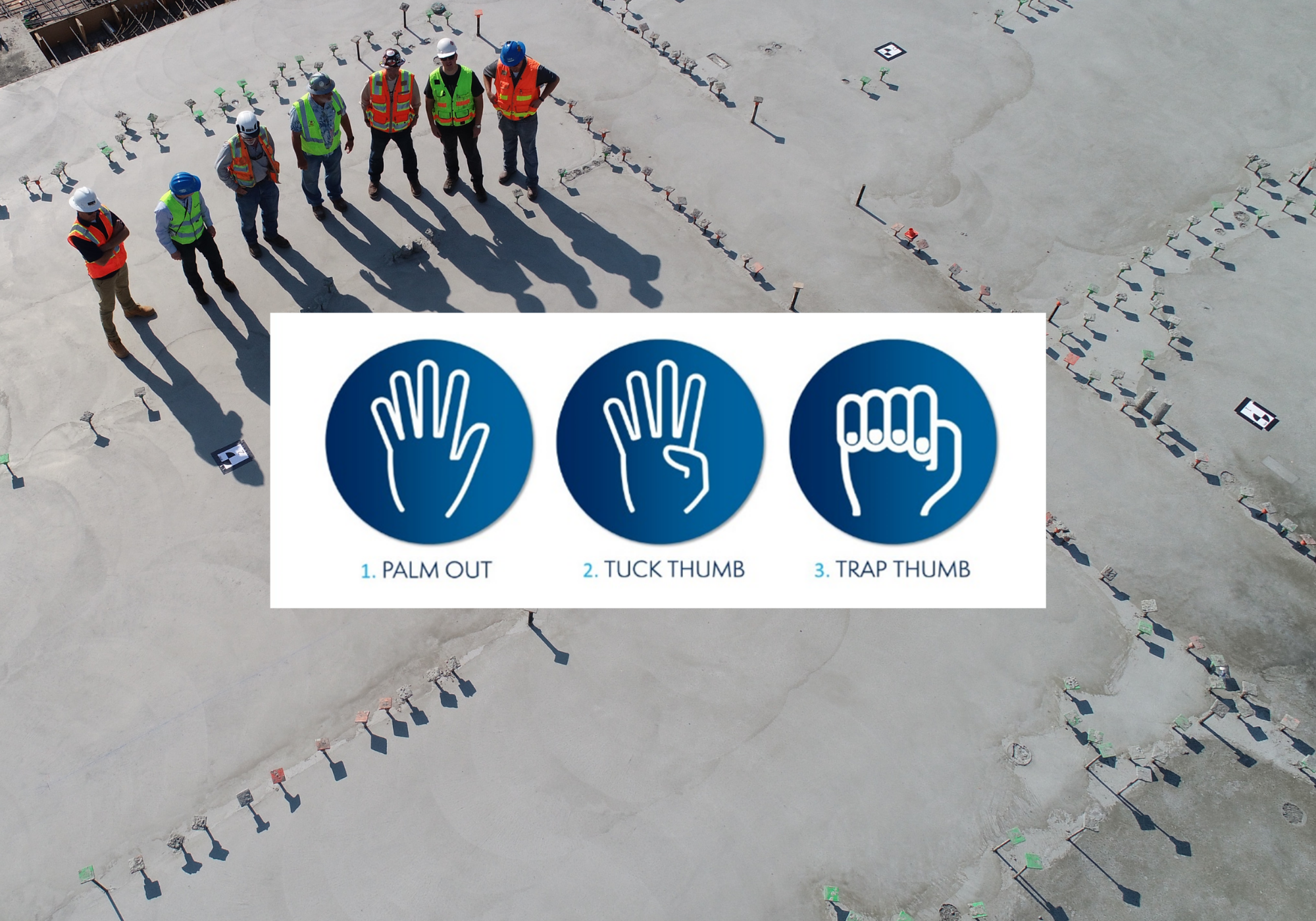A new hand signal has been launched on this year’s UK Anti-Slavery Day (18 October) to help fight modern slavery in the construction sector.
The hand signal has been developed by a leading multi-stakeholder initiative working to prevent modern slavery, Stronger Together, with backing from the industry leaders, CITB and CIOB. The signal is a new tool to empower victims of modern slavery in construction to get help, with the aim that it will be adopted industry-wide to help individuals being exploited to discretely seek help.
Construction has been identified as high-risk for modern slavery by various bodies, including the Gangmasters and Labour Abuse Authority, and the sector is increasingly taking measures to prevent this most extreme form of labour exploitation, whilst identifying and supporting victims.
Detecting victims, who are often ‘hidden in plain sight’, is a particular challenge as victims are often unable to communicate easily for reasons including being under threat and intimidation in the workplace, and/or may not speak English as a first language. It is important therefore that victims can use a non-verbal signal as necessary, enabling them to seek help discretely without raising suspicion or placing themselves or others in danger. This is a particular challenge faced on construction sites, but is shared across many other workplaces.
The launch of this new hand signal comes after various stories of labour exploitation in construction, including a recent investigation by British and Romanian authorities that resulted in eight people being charged on offenses of human trafficking.
The sponsors of Stronger Together’s Construction Programme, led by Michaela Skodova, set out to develop a simple and universal signal that could be used by victims on construction sites and other workplaces.
Following a number of focus groups, the Hand SOS signal was selected.
This signal for help was originally launched by the Canadian Women’s Foundation as a simple, one-handed sign that someone can silently use to indicate that they need help and want someone to check in with them in a safe way.
Supported by the Chartered Institute of Building (CIOB), CITB and the Gangmasters and Labour Abuse Authority (GLAA), Stronger Together has launched this signal on UK Anti-Slavery Day, for victims who are seeking help.
Organisations from all backgrounds and sectors are being encouraged to explore how they can adopt the hand signal, with a range of resources available for them to use for free on Stronger Together’s website, including SOS Hand Signal posters, a short film introducing the signal, and more.
Pamela Zielinski, Construction Programme Manager, Stronger Together, said:
“Imagine the unimaginable; you have been targeted and are now controlled by individuals who place little or no value on human life other than as a means to make money. You cannot voice the trauma and fear you experience on a daily basis perhaps because you can’t speak the language or simply because you fear being overheard by the wrong people. This hand signal may be your only chance.”
Kay Barnes, Corporate Social Responsibility Manager at CITB, said:
“We are pleased to support the launch of this hand signal, which is a simple new tool to help raise awareness of modern slavery and empower those affected by it. We know from our own fraud investigations that modern slavery exists within construction, and we all need to work together to stamp it out.”
“We would encourage everyone to read and share the free Stronger Together resources on their website and play their part in tackling this issue.”
Caroline Gumble, CIOB Chief Executive, said:
“CIOB’s work to raise awareness of modern slavery in construction and how it can be tackled started some years ago and continues with our support for this campaign. In the post-Brexit and post-pandemic period, there are many in construction with concerns that modern slavery may be on the increase so anything that might provide a route to support or safety for victims is to be welcomed. It’s also a useful opportunity to remind industry professionals of their role in helping to combat the problem and the signs of modern slavery to look out for.”







